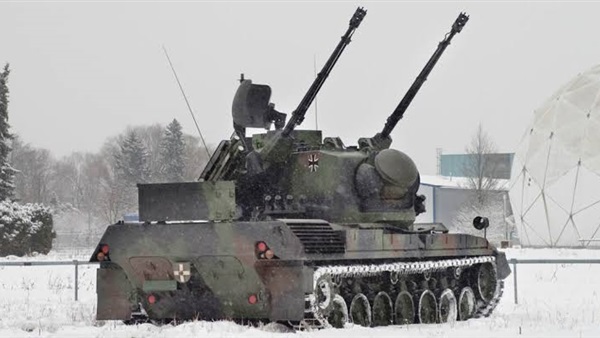Germany ‘breaks its promise’ to give Kyiv more heavy weapons

Germany has reduced military support for Ukraine “to a minimum” prompting accusations that it has reneged on its pledge to provide heavy weaponry.
Following Russia’s invasion of Ukraine in February, Olaf Scholz, the German chancellor, reversed a historical policy banning the provision of arms to conflict zones and authorised the shipment of anti-tank and anti-aircraft weapons. However, since March 25, Germany has sent only two arms packages to Ukraine, according to documents seen by Die Welt.
The shipments included 4,600 anti-tank mines, machinegun parts, radios, hand grenades and other explosives.
On two occasions, once in April and once this month, Ukraine wrote to the German government urgently requesting tanks and armoured fighting vehicles, the newspaper reported.
However, despite assurances that Berlin would provide heavy weapons, deliveries are yet to arrive.
Andrij Melnyk, Ukraine’s ambassador to Germany, has accused Scholz of abandoning Kyiv by failing to supply 100 Marder infantry fighting vehicles. Although his foreign and economics ministers have approved the transfer, Scholz has yet to sign it off. “Militarily, Ukraine is simply being left in the lurch by Berlin,” Melnyk told Bild.
Over the weekend, the ruling coalition was shaken by recriminations over claims that Scholz’s Social Democratic Party (SPD) had misled the public, MPs and other governing parties over arms exports to Ukraine.
Siemtje Möller, an SPD defence minister, claimed that Nato had agreed collectively that “no armoured personnel carriers or western-model battle tanks will be delivered”. The claim was “conclusively” denied by Marie-Agnes Strack-Zimmermann, the liberal Free Democratic Party (FDP) chairman of the Bundestag parliament’s defence committee, whose party is also in the coalition.
Gabrielius Landsbergis, the Lithuanian foreign minister, told Bild am Sonntag that a Nato agreement not to supply armoured vehicles had “definitely never been discussed”.
President Duda of Poland said last week that he was “very disappointed” Germany had failed to honour a swap deal to send Leopard 2 tanks to replace Soviet-era T-72s that the Polish military had transferred to Ukraine.
Germany has also agreed to provide Ukraine with seven Panzerhaubitze 2000 long-range, self-propelled guns and 50 Gepards, tank-like vehicles armed with radar-guided anti-aircraft cannons, but the first batch will not arrive until July.
Dmytro Kuleba, the Ukrainian foreign minister, voiced his frustration in a speech at the World Economic Forum in Davos last week. “Every day they spend deciding . . . people get killed.”
Also speaking at Davos, Melnyk said Scholz had failed to outline concrete steps to help his nation and “lacks leadership and courage”.
The chancellor did not respond to Melnyk’s criticism. During a speech to a Catholic convention in Stuttgart last week he reiterated that Germany was committed to supporting Ukraine, but posed a series of rhetorical questions that raised doubts about how it would demonstrate that support.
“At the heart of the matter is the question: can violence be fought with violence? Or, as some people put it: can peace only be achieved without weapons? It is clear that such questions must be discussed,” he said.





